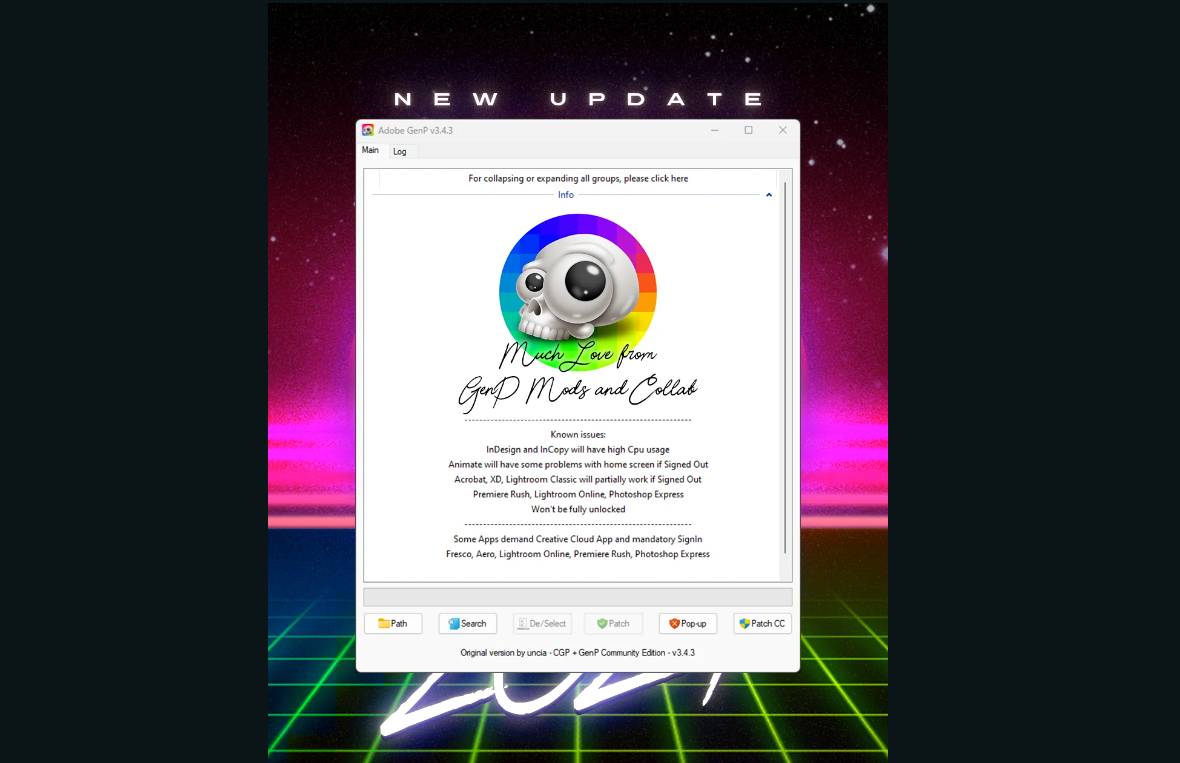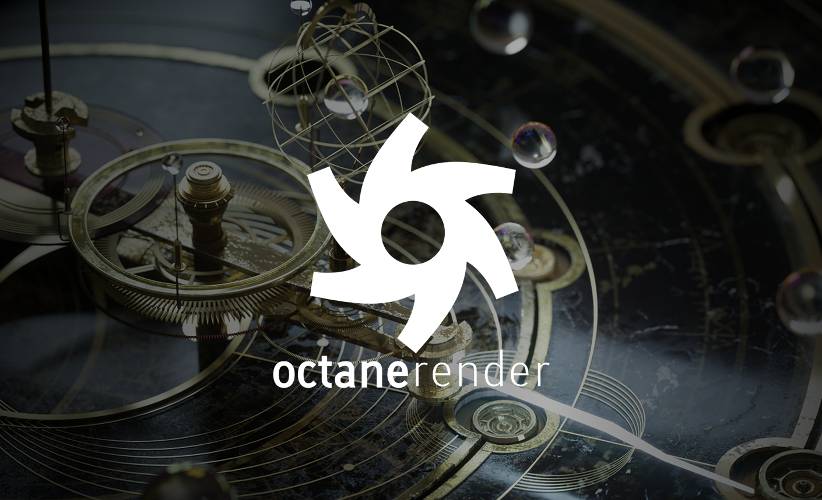AD

Maxon Cinema 4D Studio 2024 Win Full Version Free Download Windows
CINEMA 4D
WHAT’S NEW?
Cinema 4D 2023 brings standout features for all Cinema 4D users and integrates technology across the Maxon family. This release provides some of the most-wanted features among our artists – comprehensive modeling symmetry, in-place asset management and native OCIO support. Unified Simulations gain artist-friendly features and support for soft-body simulations. The latest update introduces Pyro for creating fire, smoke and explosions – quickly simulated on the GPU or CPU. The new Redshift Camera offers intuitive physical camera controls and Redshift Effect settings. Viewport preview of Redshift materials keeps getting better, with support for animated textures, ramps and color correction nodes. Radial Symmetry now makes it easier than ever to interactively model anything round. We’re bringing the best of Maxon technology together with integrations across Maxon One into Redshift, Red Giant, ZBrush and Forger.
WHAT IS CINEMA 4D?
Cinema 4D is a professional 3D modeling, animation, simulation and rendering software solution. Its fast, powerful, flexible and stable toolset make 3D workflows more accessible and efficient for design, motion graphics, VFX, AR/MR/VR, game development and all types of visualization professionals. Cinema 4D produces stunning results, whether working on your own or in a team.
CINEMA 4D
AWARD-WINNING MOGRAPH
MoGraph is a procedural modeling and animation toolset that gives motion designers the ability to quickly and easily create complex and abstract animations. At the heart of MoGraph is the Cloner object which allows you to duplicate objects in a variety of ways. Add MoGraph’s powerful collection of Effectors to the mix and you can put everything in limitless motion using sound, fracturing, fields, and so much more – often without creating a single keyframe! MoGraph is the go-to system for professional broadcast graphics designers and was recognized by the Academy of Motion Picture Arts and Sciences with a Technical Achievement Award in 2019.
It’s that time of year where Maxon jumps all the way ahead to the year 2024 for it’s latest Cinema 4D update. Headlined by the updated rigid body simulation system and Redshift finally being anointed as the default renderer, C4D 2024 includes a bunch of quality of life features including dramatic increases to the interactive performance of Cinema 4D. Let’s dive into the biggest additions that you should know about! Giddy up!
CINEMA 4D
WHAT’S NEW?
Cinema 4D 2024 delivers unmatched speed and performance for your most demanding creative scenes. Rigid body simulations now interact with all existing forces, pyro, fabrics and soft bodies. Pyro now offers more precise controls for artists to art direct their simulation and ensure it matches their vision. By adding the Pyro tag to standard particle emitters, thinking particle geometries and matrix cloners, they can now emit Pyro. And the new Vertex Normal tools offer you unparalleled precision for perfect surfaces.
PYRO
Fire up your creativity!
With Pyro you can easily create fire, smoke and explosions in Cinema 4D, which are then simulated on the GPU or CPU.
Simply use the so-called Pyro tags. With them you can emit smoke and fire from any Cinema 4D object. Define the smoke density, the temperature of the fire and more. The Pyro object determines which voxel grids are exported to Cinema 4D’s object system for rendering and other effects. Additionally, it makes it easier to cache the simulation in the VDB.
Need fuel? No problem. Add fuel easily by adding a Pyro Tag on objects. When the fire meets the fuel, the trail is lit, and the inferno grows.
Pyro also integrates seamlessly with Cinema 4D’s Unified Simulation System, so you can easily set Cloth and Soft Bodies ablaze. By default, everything is combined into a single simulation. With the Simulation Scene object, simulation effects and forces can be split into separate simulations.
By adding the Pyro tag to standard particle emitters, thinking particle geometries and matrix cloners, they can now emit Pyro. This enables you to create filmic scenes with fire, smoke trails and explosions or visualize beautiful fireworks on the night sky.
UpRes gives you the power to use a lower resolution simulation for quicker turnarounds during the art direction and concepting stage of a project and then render the simulation in full quality for final output.
When developing pyro effects, previews are critical to the artistic design of the simulation. With Pyro, you can fire off fantastic viewport previews of Pyro and Fog VDBs for client review. Density and temperature show up as smoke and fire, and thanks to NanoVDB the preview extends beyond Pyro objects to support any Fog volume in Cinema 4D.
In the Pyro Emitter colors can be controlled via Vertex Colors, by Default Simulations can be of infinite size but can be restricted in space using a destructor force to improve performance.
SCENE MANAGER
Scene Manager / Scene Nodes (preview)
Experience first-hand how things are taking shape as work continues on Cinema 4D’s new core. Cinema 4D’s Scene Manager uses powerful, node-based assets to construct procedural geometry or entire scenes in a hierarchy-based view. The Scene Manager will eventually offer a fast and creative workflow much like Cinema 4D’s Classic Object Manager, and you can easily integrate Classic C4D objects by simply dragging them into the Scene Manager. Everything you do within the Scene Manager creates a corresponding node graph within Scene Nodes, so you can choose whichever workflow you prefer or the job demands. Thanks to the new connect node, you can quickly merge multiple meshes or splines into a single geometry.
Cinema 4D now offers a revamped and more intuitive Node UI. The new Notes feature allows you to annotate directly in the Node Editor and document your nodal network.
Scene Nodes
With Cinema 4D’s Scene Node core you can manage relationships and dependencies between objects, construct and modify geometry, and build reusable assets.
Scene Nodes Debugging
You can effectively debug scene node systems with the help of an information overlay, port debug panels within the Node Editor, and a powerful Data Inspector window for detailed introspection of arrays and other complex datatypes.
A new Heat Map highlights prime targets for optimization in node-based capsules, both in the form of visual highlights on nodes and detailed info in the Console. The Data Inspector includes usability enhancements, with new options to follow and easily delete inspectors and enhanced views to inspect the points, polygons and geometry properties.
Distributions, Nodes and Capsules
The true power of Scene Nodes is the ability for TD-level users to expand the ecosystem without a single line of code, and these both expand possibilities and serve as a useful example of the type of tools users can expect as Scene Nodes continues to mature.
If you are familiar with Scene Nodes, you can build your own tools. Use combinations of existing nodes to create your own geometry modifiers and deformers.
Scene Nodes Spline Core
Support for splines in Cinema 4D’s Scene Nodes core makes it possible to assemble linear, bezier, b-splines and NURBs splines. Properties like color, weight and normal can be assigned to points and the interpolated position, tangent and values can be retrieved along the spline. The Spline Primitive Group allows the creation of new Spline Primitive assets, and several built-in primitives include C4D favorites and a new Segment primitive.
Data Integration
CSV files can be imported and used in your Scene Nodes setups, enabling rich 3D data visualizations. Capsule assets provide a variety of data visualization options that can be easily applied to any data. With the new Command Line Argument node, values can be passed into Scene Node setups to render dynamic content without opening Cinema 4D.
SIMULATION
ARTIST: VLADISLAV SOLOVJOV
With the new Unified Simulation System you can achieve more realistic-looking simulations that incorporate multiple objects with different simulation characteristics such as cloth, ropes, rigid bodies, soft bodies and pyro. The Unified Simulation System allows simulations to be calculated on either the CPU or GPU and is highly multi-threaded, offering improved performance with complex cloth simulations.
Balloon simulations now support vertex maps, allowing you to create seams and control areas of inflation. Pyro allows artists to emit smoke, fire and explosions from any Cinema 4D object or spline and quickly simulate the effects. Smoke density, fire temperature and more parameters can be controlled to art-direct the simulation. Thanks to Pyro’s seamless integration with Cinema 4D’s Unified Simulation System, Cloth and Soft Bodies can be set ablaze and fan the flames.
MODELING
Creating 3D objects has never been easier thanks to a broad collection of new procedural and interactive modeling tools. Automatically transform the topology of any mesh using ZRemesher. Create entirely new shapes with a bevy of powerful new interactive modeling tools, many of which can also be applied procedurally via Node Capsules. Advanced spline nodes power new capsule possibilities, while improved Vector Import support makes it easier than ever to work with Illustrator and SVG artwork.
Modeling with Symmetry allows mirrored changes on the model. Users can define the symmetry using the world grid, the object axis, a custom workplane, or even the topology of the model. Radial Symmetry makes it easy to interactively model anything round by defining a number of slices and offset.
Select Pattern enables you to repeat a selection across the surface of your mesh with a click of a button.
With the help of the Projection Deformer you can quickly move points from one object onto another in any direction.
Redshift works with CPU only.
Maxon Cinema 4D Studio 2024 Win Full Version Free Download Windows
https://zeroupload.com/e3d0b6c7c5f2e47d1b4f614ec05d738d
Piracy is meant to be free. Those who sell pirated contents are all losers and if you are paying for pirated contents then you are the biggest loser.
Please read FAQ if you need basic help.
Use VPN & FDM if you have download problems.
Those who sell pirated content are losers.
If you're paying for pirated content, you're the biggest loser.
Please read the FAQ if you need basic help.
Use VPN &
FDM if you have download problems.
AD








